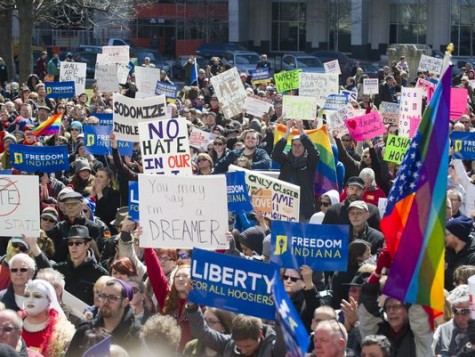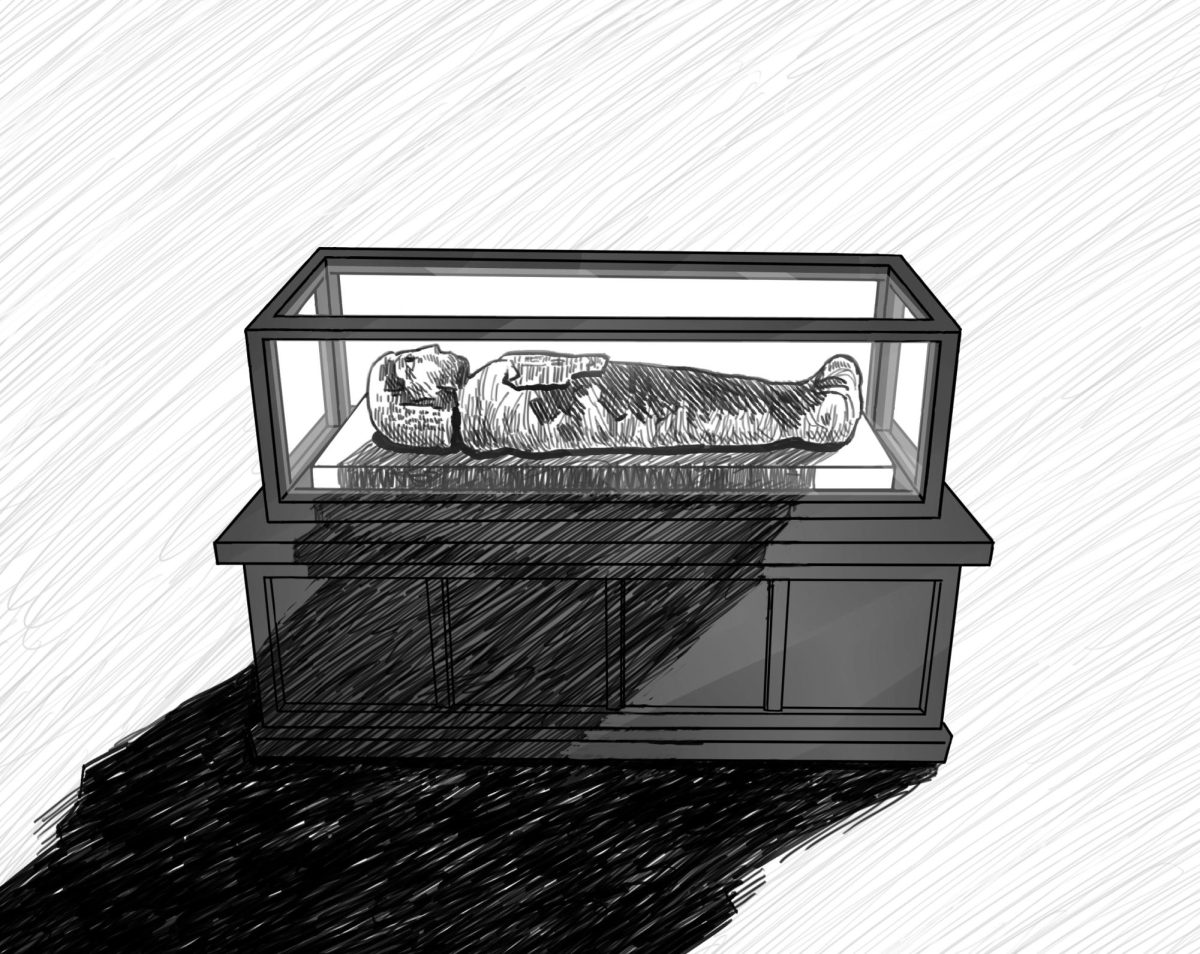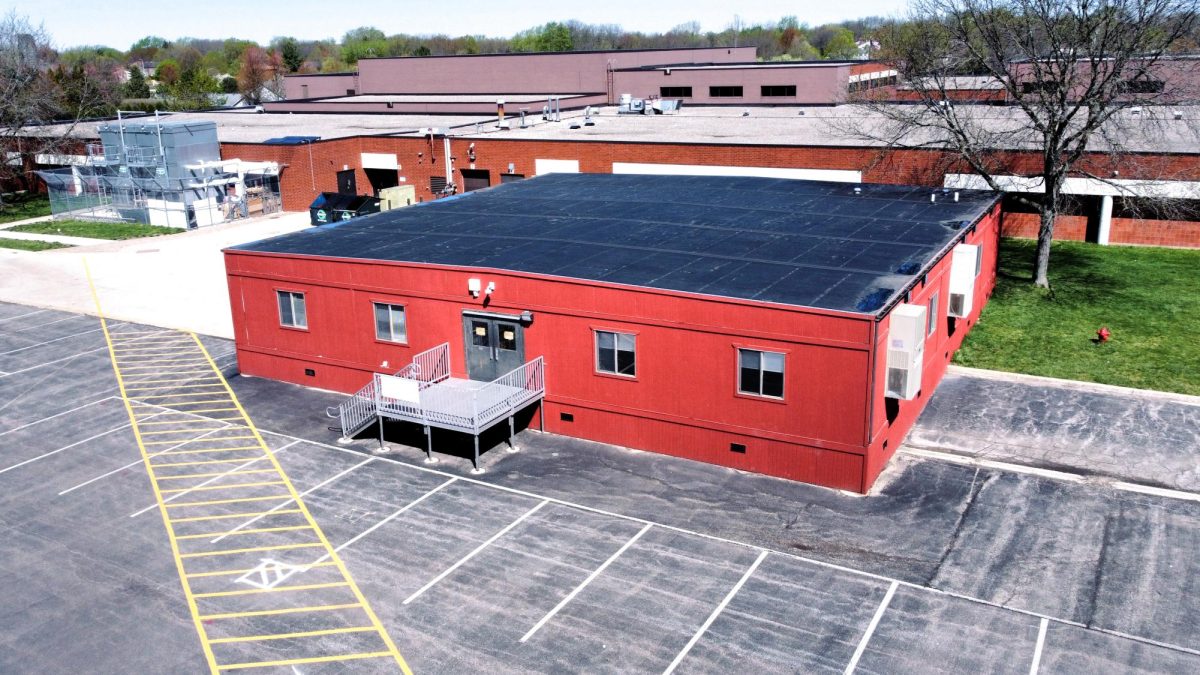Why Indiana’s bigoted bill is taking a beating
April 7, 2015
Last week, Indiana Governor Mike Pence signed into law the “Religious Freedom Restoration Act” (RFRA), variations of which appear in 19 other states and has a federal counterpart that was signed into law by Bill Clinton in 1993. Within hours, Pence and his state’s legislature was left reeling after massive scrutiny and protestation from LGBT rights groups and businesses. What’s the deal with this law, and why is it being so aggressively attacked?

The bill itself says that the government cannot “substantially burden” a person’s ability to follow his or her beliefs unless it can provide compelling reasons to impose that burden or can do so in the least restrictive manner possible. Unlike other laws, where this provision can only be used in court against the government, Indiana’s legislation permits the use of this bill against individuals.
Proponents of this law say that it protects the integral First Amendment right of freedom of religion for the people of Indiana, just as it does in the many other states across America. However, there are two important differences between Indiana and those other states, and those differences have thrown this legislation into national controversy: anti-discriminatory precedent and timing.
All states that have passed RFRA measures have strict laws barring discrimination based on sexual orientation, ensuring that while their law expands religious freedom, it does not give individuals the right to deny service to gays. Indiana, however, has no such law; in fact, only a handful of cities have any such provisions at all. Critics of this law are lambasted Pence for potentially legalizing the discrimination of gays, even as the governor denied that discrimination was never the intent of this bill and tried to push for a clarifying amendment.
One only has to look at the people surrounding Gov. Pence at the bill signing to see that that claim is obviously false. Just behind Pence stood Eric Miller, executive director of Advance America, a long-time anti-LGBT activist. Miller states openly on the Advance America website that the bill will allow wedding vendors to refuse to serve same-sex couples and allow businesses to deny transgender people access to bathrooms.
Next to Miller stood Micah Clark, the executive director of the American Family Association of Indiana. Speaking on Monday with Tom Wildmon, head of the national American Family Association, Clark vehemently urged conservatives to stop any attempt to pass language that would clarify that the law does not legalize discrimination.
“That could totally destroy the bill,” Clark explained.
These conservative hardliners have come under severe pressure from social media, celebrities and big businesses to repeal the law or, at the very least, clarify the intent of the bill. Apple CEO Tim Cook, Angie’s List CEO Bill Osterle (a Pence supporter), the NCAA and even NASCAR have gone on the offensive. GamerCon, one of the largest gaming conventions in the country, the Final Four and tech giant Salesforce are all saying they may pull out of the state, potentially starting to cripple Indiana’s economy.
“This isn’t a political issue,” Cook wrote in an op-ed for the Washington Post. “This isn’t a religious issue. This is about how we treat each other as human beings.”
The outrage may not have been so great if this law was passed just five years ago, but today is a new America. 59 percent of Americans, the largest percentage in the country’s history, support the legalization of gay marriage, according to a Wall Street Journal/NBC News survey. Along with this, North Carolina Gov. Pat McCrory (R) had announced just weeks before that he would veto a similar bill should his state legislature pass it, lending more strength to the LGBT rights movement.
The changing nature of American support for gay rights exemplifies the challenge facing the Republican Party. Many members of the GOP seeking their party’s nomination for the presidency in 2016 have affirmed their belief in this new law in order to appeal to the party base of social conservatives. However, they must all walk a tight line to keep the base happy without alienating young voters, many of whom strongly advocate for LGBT equality. More and more Republicans, however, are starting to move toward the American consensus of supporting gay rights, but some conservatives continue to fight.
Thankfully, the PR firestorm that followed the passage of this bill into law has forced Pence into action. The governor pleaded the state’s legislature to put an amendment on his desk by this weekend that would clarify the intent of the RFRA and ensure that there would be no discrimination on account of sexual orientation. Under severe public pressure, the Indiana government buckled, and such an amendment has now been passed which protects the state’s gay population.
The Indianapolis Star put it best with their cover on Wednesday by addressing Gov. Pence with just three words: “Fix this now.”
Thanks to the voice of the people, things are well on their way to being fixed.











